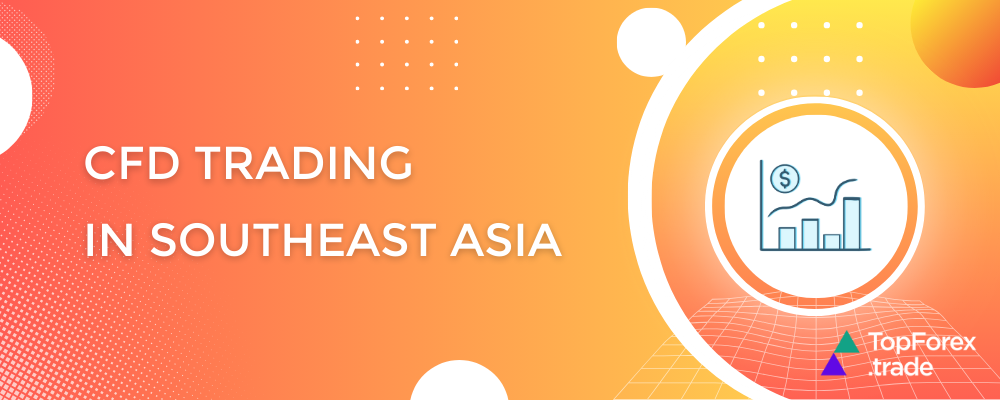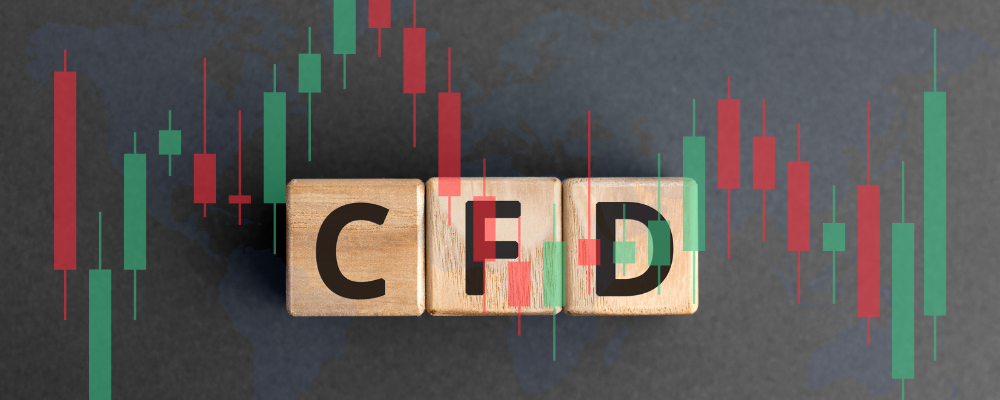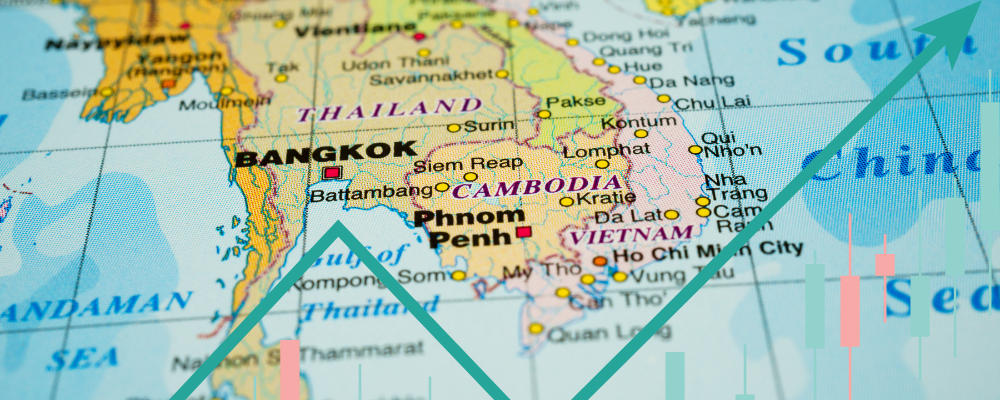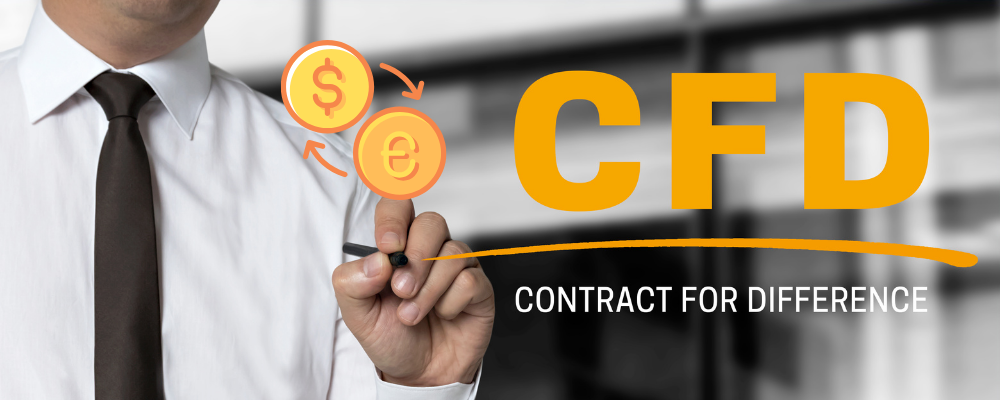CFD trading in Southeast Asia: brokers and regulations

Contract for Difference (CFD) trading has surged in popularity across Southeast Asia, offering traders a way to profit from price movements in stocks, forex, commodities, and indices without owning the underlying assets. While the potential for high leverage and diverse market access makes CFDs attractive, the regulatory landscape varies widely across the region, posing both opportunities and risks.
In this guide, we’ll break down:
✅ Key legal and regulatory challenges
✅ How to trade CFDs safely in the region
✅ The best CFD brokers in Southeast Asia
CFD trading features

What are CFDs?
A Contract for Difference (CFD) is a derivative product where traders agree to exchange the difference in an asset’s price between the opening and closing of the contract. Unlike traditional investing, CFD traders never own the underlying asset – they only profit (or lose) based on price movements.
Key features of CFD trading:
✔ Leverage – Trade with borrowed capital (e.g., 1:30 leverage means 1controls30 in position size).
✔ Short and long positions – Profit from both rising and falling markets.
✔ Diverse markets – Trade forex, stocks, commodities, indices, and crypto.
✔ No ownership – Avoid stamp duties, physical delivery, or stock ownership complexities.
Risks of CFD trading:
⚠ High leverage risk – Can amplify both profits and losses.
⚠ Overnight financing fees – Holding positions long-term incurs swap charges.
⚠ Market volatility – Sudden price swings can trigger margin calls.
⚠ Broker risk – Unregulated brokers may engage in unethical practices.
CFD trading regulations in Southeast Asia

CFD trading regulations in Malaysia
Regulatory body: Securities Commission Malaysia (SC)
Read more: Top Forex and CFD brokers in Malaysia
CFD status: ✅ Legal (but restricted)
- Only licensed brokers can offer CFDs.
- Leverage capped at 1:50 for retail traders.
- Cryptocurrency CFDs are banned.
- Taxation: CFD profits may be taxed as capital gains if trading is frequent (considered business income).
CFD trading regulations in Singapore
Regulatory body: Monetary Authority of Singapore (MAS)
Check out: Top Forex brokers in Singapore
CFD status: ✅ Legal (strictly regulated)
- Leverage capped at 1:20 for retail traders.
- Brokers must be MAS-licensed.
- No capital gains tax, but frequent traders may face income tax.
CFD trading regulations in Thailand
Regulatory body: Securities and Exchange Commission (SEC Thailand)
Learn more: Top Forex brokers in Thailand
CFD status: ❗ Accessible to Thai traders but operates within a bit of a grey area.
- Only futures and options are allowed via SET (Stock Exchange of Thailand).
- Offshore CFD brokers operate but are not regulated by SEC.
How Thai traders access CFDs:
⚠ Some use VPNs and offshore brokers.
⚠ No legal protection if brokers refuse withdrawals.
CFD trading regulations in the Philippines
Regulatory body: Securities and Exchange Commission (SEC Philippines)
Click here: Top Forex Brokers in the Philippines
CFD status: ⚠ Unregulated (grey market)
- No local CFD brokers are licensed.
- Traders rely on offshore brokers (e.g., Exness, XM).
How to trade safely in the Philippines:
✔ Choose ASIC or FCA-regulated brokers for better security.
✔ Verify withdrawal policies before depositing.
✔ Start with small amounts to test broker reliability.
CFD trading regulations in Vietnam
Regulatory body: State Bank of Vietnam (SBV)
Our recommendations: Top Forex brokers in Vietnam
CFD status: ⚠ Unregulated
- No local CFD brokers are approved.
- Traders use offshore platforms.
How to trade CFDs safely in Southeast Asia

1. Pick a regulated broker
- Singapore/Malaysia: Use MAS or SC-licensed brokers.
- Philippines/Vietnam: Prefer ASIC, FCA, or CySEC-regulated brokers.
2. Manage leverage wisely
- Recommended: ≤1:20 (retail), ≤1:5 (beginners).
- High leverage = Higher risk of margin calls.
3. Use risk management tools
- Stop-loss orders (auto-close losing trades).
- Take-profit orders (lock in gains).
Top FX and CFD brokers to trade in Southeast Asia
Southeast Asia’s growing interest in forex and CFD trading has led to an influx of brokers, but not all are trustworthy. To help you trade safely, we’ve analyzed regulation, trading conditions, fees, and user experience to rank the best 5 brokers for traders in Singapore, Malaysia, Thailand, Vietnam, and the Philippines.
Exness: best overall
✅ Regulation: FSA (Seychelles), CySEC (EU) – Not MAS/SC licensed but popular in SEA
✅ Best for: High leverage, low spreads, fast withdrawals
✅ Key features:
✔ Leverage up to 1:unlimited (for professional traders)
✔ Zero spreads on ECN accounts
✔ Instant withdrawals (under 1 second for e-wallets)
✔ Supports local payments (FPX, GrabPay, Thai banks)
XM Group: best for beginners
✅ Regulation: ASIC, CySEC, IFSC (Belize)
✅ Best for: New traders, educational resources
✅ Key features:
✔ $5 minimum deposit (low entry barrier)
✔ Free trading courses and webinars
✔ No requotes, no rejections (smooth execution)
✔ 1,000+ instruments (forex, stocks, commodities)
BlackBull Markets: best for tight spreads
✅ Regulation: FMA (NZ), FSA (Seychelles)
✅ Best for: Low-cost trading, ECN execution
✅ Key features:
✔ Raw spreads from 0.0 pips (ECN account)
✔ MetaTrader 4 and 5 support
✔ Fast execution (under 20ms)
✔ Good for scalping and algo trading
eToro: best for Copy trading
✅ Regulation: CySEC, FCA, ASIC
✅ Best for: Social trading, beginners
✅ Key features:
✔ Copy successful traders (automated mirror trading)
✔ User-friendly mobile app
✔ Supports crypto, stocks, and CFDs
✔ $10 minimum deposit
Risk disclaimer: eToro is a multi-asset platform which offers both investing in stocks and cryptoassets, as well as trading CFDs.
CFDs are complex instruments and come with a high risk of losing money rapidly due to leverage. 51% of retail investor accounts lose money when trading CFDs with this provider. You should consider whether you understand how CFDs work, and whether you can afford to take the high risk of losing your money.
This communication is intended for information and educational purposes only and should not be considered investment advice or investment recommendation. Past performance is not an indication of future results.
Copy Trading does not amount to investment advice. The value of your investments may go up or down. Your capital is at risk.
Don’t invest unless you’re prepared to lose all the money you invest. This is a high-risk investment and you should not expect to be protected if something goes wrong. Take 2 mins to learn more.
eToro USA LLC does not offer CFDs and makes no representation and assumes no liability as to the accuracy or completeness of the content of this publication, which has been prepared by our partner utilizing publicly available non-entity specific information about eToro.
OANDA: best for professional traders
✅ Regulation: MAS (Singapore), ASIC, FCA
✅ Best for: Advanced traders, strong regulation
✅ Key features:
✔ Trusted by institutions (since 1996)
✔ No minimum deposit
✔ Advanced charting tools (TradingView integration)
✔ Good for forex and indices
Related articles:
Forex trading in Southeast Asia - FAQ